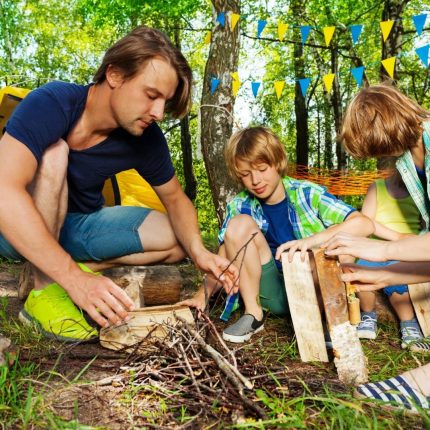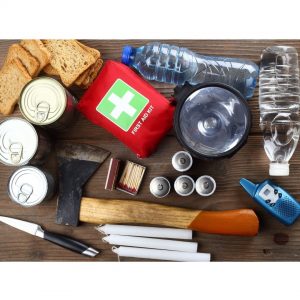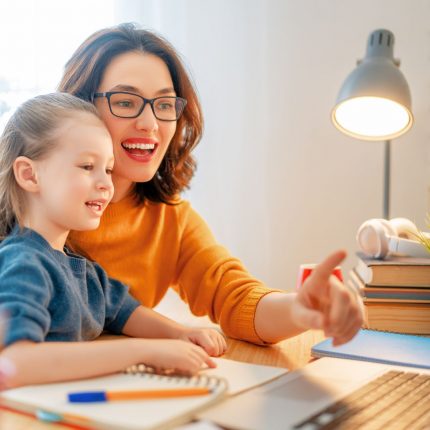
Teaching Kids About Emergency Preparedness
January 31, 2022One of the great benefits of homeschooling is that you can expand outside of the typical school syllabus and teach your kids some life lessons that they might not always learn inside of the traditional classroom. One of the subjects that you should cover with your homeschooler is how to prepare for certain emergencies that may affect their lives, whether they are at home or in public.
As many schools continue to limit in-person learning due to COVID-19, this is a good time to talk about the dangers of some specific emergency scenarios and how to properly react so your kids can stay safe and help others who may find themselves in danger. Lessons should include potential situations specific to your area, who to go to for help, and how to always stay safe when inside or outdoors.
Teach Who to Approach for Help
Even though your kids spend more time at home during the day, it doesn’t mean that an emergency can’t occur, and if it does, your children should be taught who they should reach out to for help.
Teach them about the common signs and ailments when someone in the home suffers from a heart attack or stroke or they see a fire or crime occurring before them. Instruct them that when they sense that a family member is in danger, they should call 9-1-1 so they can summon an ambulance. When dialing 9-1-1, they should know that they must clearly disclose the emergency, tell the operator who they are, and provide their address if necessary so help can be sent immediately.
While you are on the topic, tell your kids a bit about which services they might frequent for specific scenarios. For instance, if a family member is suddenly unconscious, the emergency room is the best place. However, if your child or someone near them is suffering from something like a migraine, which is likely less emergent, then they would be better assisted at an urgent care facility.
frequent for specific scenarios. For instance, if a family member is suddenly unconscious, the emergency room is the best place. However, if your child or someone near them is suffering from something like a migraine, which is likely less emergent, then they would be better assisted at an urgent care facility.
It is important to remember that not all emergencies are physical in nature and that sometimes, the danger your child may face could be more emotional. Even when they are homeschooled, your kids will sometimes get out of the house and when they do, there is the chance that they could be placed in unhealthy social situations, such as being bullied or having the temptation to try drugs and alcohol. Parents should be proactive about these matters and teach their kids that if they are in a bad situation, they should tell their parents immediately. If the situation is not easily resolved at home, then a counselor or therapist may have to be involved.
Teach How to Respond to Natural Disasters
Regardless of where in the country your family resides, there is likely the potential of some type of natural disaster, and since your children may be at home learning when a storm or natural event does occur, you will want to teach them how to be prepared.
Families who live on the west coast can experience an earthquake at any time, so if one strikes during homeschooling lessons, your kids should know what to do the moment they feel a shudder. If they are indoors, they should stay where they are and avoid trying to run outside or through doorways. If they are outside, they should move away from nearby buildings.
Another common natural disaster that can happen in many parts of the country is severe thunderstorms that could result in flooding. Teach your kids that if they start to see a dark sky and lightning, they should go inside, and once there, they should avoid using electricity when possible, especially devices that plug into electrical outlets.
see a dark sky and lightning, they should go inside, and once there, they should avoid using electricity when possible, especially devices that plug into electrical outlets.
To properly prepare for stronger storms and power outages, your family will want to have an emergency kit pre-made, so you are prepared if your mobility is limited. During one of your homeschooling lessons, a fun and instructive project may include gathering all of the supplies for your emergency kit, which should include first aid supplies, bottled water, a flashlight, blankets, and food that won’t go bad, like granola bars. Then, the kids can help choose a location for the kit within your home so they know where to find it in a time of need.
Teach Outdoor Survival Skills
If you want to get out of the house and teach your kids some different lessons they won’t learn in homeschool, then you should bring the family camping. There are many different lessons that you can teach kids while you are out in the wilderness, such as:
- How to survive outdoors without technology with tools like a compass.
- Problem-solving skills such as what to do when your firewood is wet or you’re missing a tent pole.
- Lessons about resilience and the wonders of nature, amongst other important lessons.
While you are out there, you can teach your kids about several ways to stay safe during the camping trip. As far as general safety, tell them the importance of using sunscreen and insect repellent as well as the importance of staying on marked trails and not playing around the fire. Another important lesson is how to stay hydrated and drink plenty of water so you don’t get sick or lose energy during those long hikes.
Certain unforeseen emergencies can happen during camping trips and you will want to educate your children on how to react before your big adventure. A common emergency is the potential to get lost in the woods. Instruct them that if they do get lost, they should stop and take a moment to relax and think carefully about their situation. Then, the best idea is to travel downhill, and if you see a stream, follow it because it will likely lead to civilization. It is also a good idea to teach your kids some basic first aid, just in case they get hurt during the trip.
In the end, we can all benefit from learning a bit more about emergency preparedness. By sprinkling these lessons into your homeschooling schedule, you can rest assured that your kids will be in good hands should an unfortunate situation occur.
More About the Author:
Sam Bowman is a writer who enjoys getting to utilize the internet for the community without actually having to leave his house. In his spare time, he likes running, reading, and combining the two in a run to his local bookstore.
Additional Homeschool Resources
Red Cross Emergency Preparedness
Teaching Life Skills to Your Homeschooler
Latest Posts

Guest Post by Gabriel Morse For several years, I sat for long hours every day behind one of those battleship gray desks in a windowless, dull, gray office. The pay was enough to take care…
Read more >
This post is sponsored by Little Monsters Universe. I'm Tina Salmanowitz, an advocate for homeschooling and science education. With over a decade of experience as a science educator (in class…
Read more >
This post is sponsored by Time4Learning. Before the pandemic, it was business as usual for Boca Raton resident Nikki Warris. Her two daughters, 5-year-old Natalie and 8-year-old Lexi were…
Read more >

